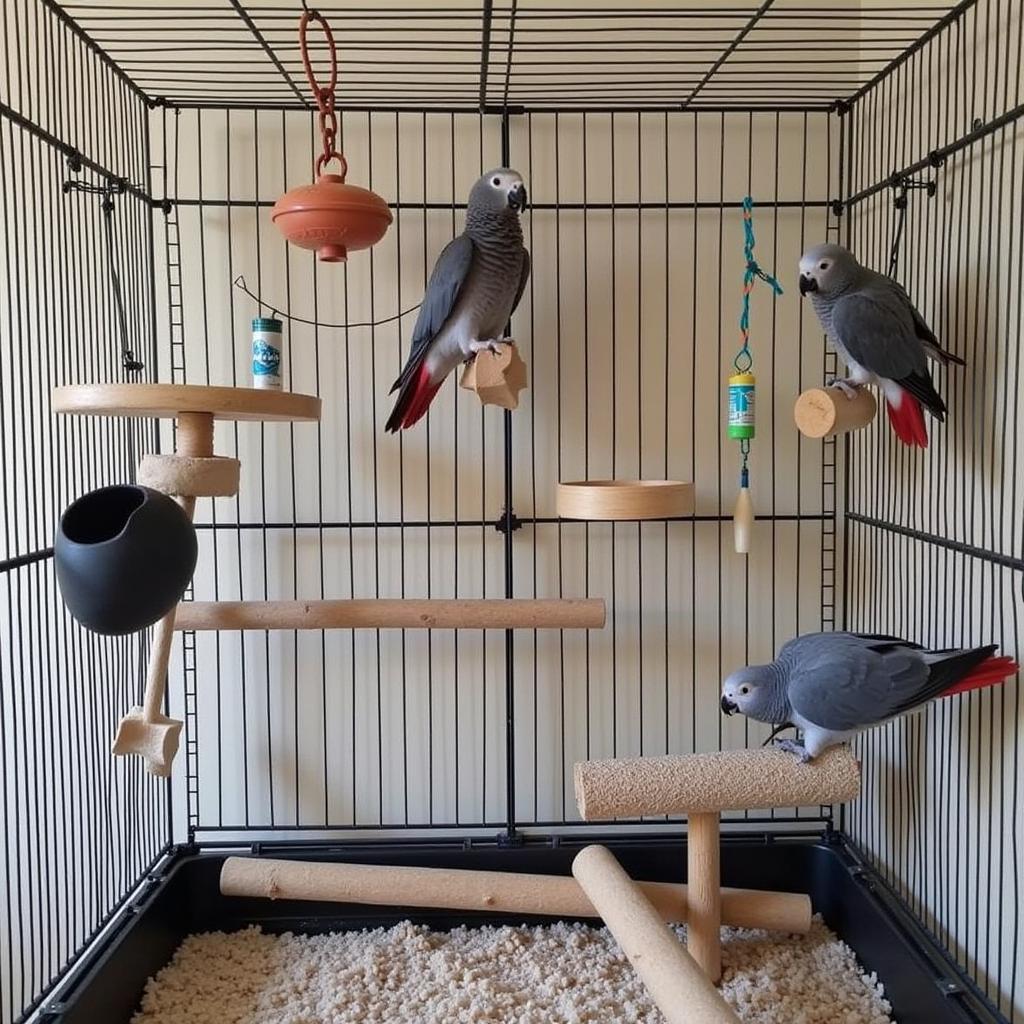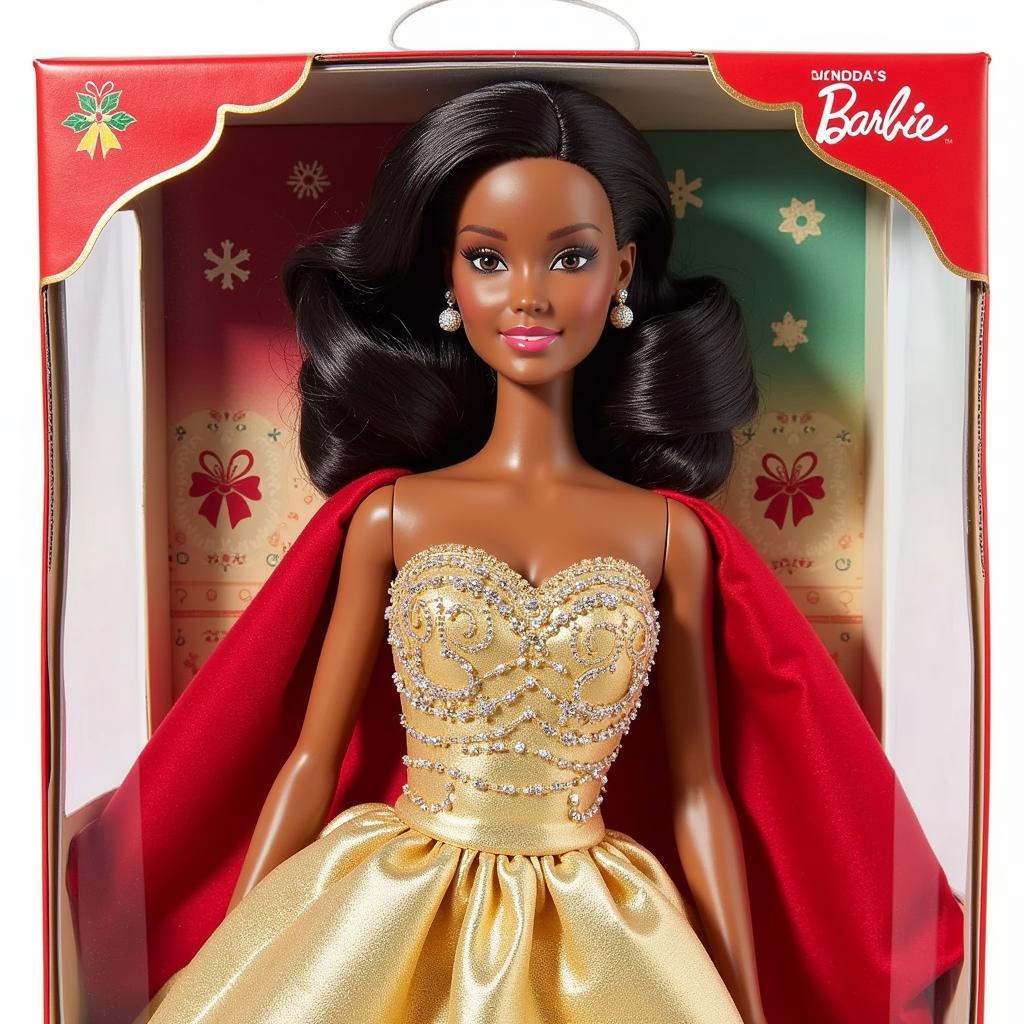African Grey Information: Your Comprehensive Guide
African Grey Information is sought after by many prospective bird owners. These intelligent and captivating birds have become popular companions, but their complex needs require careful consideration. This guide will delve into everything you need to know about African greys, from their unique traits and care requirements to understanding their behavior and ensuring their well-being.
Understanding the African Grey Parrot
African greys are known for their exceptional intelligence, often compared to that of a young human child. They are renowned for their ability to mimic sounds and human speech with remarkable clarity. However, their intelligence also means they require significant mental stimulation and social interaction to thrive. New owners should be prepared to dedicate considerable time and effort to their feathered friend. Remember, owning an African grey is a long-term commitment, as these birds can live for 50-80 years. You can find more african grey parrot information here.
Two Species of African Grey
There are two main species of African grey parrots: the Congo African Grey and the Timneh African Grey. The Congo, the larger of the two, is known for its bright red tail feathers and overall grey plumage. The Timneh, slightly smaller, has a maroon tail and darker grey feathers. Both species possess incredible talking abilities and require similar care.
African Grey Care: Meeting Their Needs
Providing proper care for an African grey is crucial for their physical and mental well-being. A nutritious diet, a spacious cage, and plenty of enrichment activities are essential. These birds require a varied diet consisting of high-quality parrot pellets, fresh fruits, vegetables, and healthy nuts. Avoid feeding them avocado, chocolate, or caffeine, as these are toxic to parrots.
Creating a Stimulating Environment
African greys need a large cage with plenty of room to move around and play. Provide a variety of toys, perches, and climbing structures to keep them entertained and mentally stimulated. Regular interaction and training are also crucial for their well-being.
 Ideal Cage Setup and Toys for an African Grey Parrot
Ideal Cage Setup and Toys for an African Grey Parrot
What to Consider Before Getting an African Grey?
Owning an African grey is a rewarding experience, but it’s essential to be prepared for the commitment. These birds require a significant amount of time, attention, and financial resources. Learn more about african grey supplies here. Their vocalizations can be loud, and their need for social interaction means they are not suitable for people who are away from home for extended periods. Be sure to research thoroughly and consider all aspects of African grey ownership before bringing one into your home.
African Grey Behavior and Training
Understanding African grey behavior is key to building a strong bond with your bird. These intelligent creatures can be playful, affectionate, and highly interactive. They can also be prone to certain behavioral issues, such as feather plucking or excessive screaming, often stemming from boredom or stress.
Training Your African Grey
Positive reinforcement training methods work best with African greys. Use rewards, such as treats and praise, to encourage desired behaviors. Consistency and patience are essential for successful training. You can find more african gray parrot information here.
Breeding African Greys: A Look at Mating
Breeding African greys requires careful planning and consideration. Ensure both birds are healthy and compatible. Providing a suitable nesting environment and a nutritious diet is crucial for successful breeding. More information on african grey parrot mating can be found here. Remember that breeding parrots requires specialized knowledge and commitment.
Conclusion: Welcoming an African Grey into Your Life
African grey information is vital for anyone considering these remarkable birds as companions. From understanding their unique needs and providing proper care to engaging in training and enrichment activities, responsible ownership is essential for their well-being. With the right knowledge and dedication, an African grey can bring years of joy and companionship to your life. If you are looking for african grey parrot chicks for sale in trivandrum you can find them here.
FAQ
- What is the average lifespan of an African Grey? (50-80 years)
- What do African Greys eat? (High-quality parrot pellets, fresh fruits, vegetables, and healthy nuts)
- Are African Greys good talkers? (Yes, they are renowned for their mimicking abilities)
- How much attention do African Greys need? (Significant daily interaction and mental stimulation)
- What are some common behavioral issues in African Greys? (Feather plucking, excessive screaming)
- How can I train my African Grey? (Positive reinforcement methods using treats and praise)
- What is the difference between a Congo and a Timneh African Grey? (Size, plumage color, and tail feather color)
Have other questions?
Explore more articles on our website for further information about African Grey care, training, and breeding.
Need support?
Contact us! Phone: +255768904061, Email: [email protected] or visit us at Mbarali DC Mawindi, Kangaga, Tanzania. Our customer service team is available 24/7.


